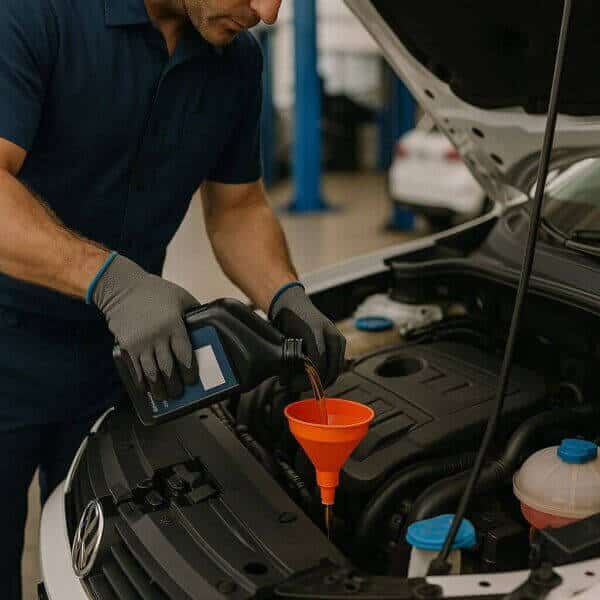Oil changes made simple are one of the easiest ways to keep your car in great shape and avoid expensive breakdowns. It might feel like just another routine task, but clean engine oil is the lifeblood of your vehicle—quietly protecting the engine, reducing wear and tear, and saving you from major headaches down the road. Let’s break it down and see why this small effort makes such a big difference.
Why Is Regular Oil Changing So Important?
Think of engine oil as a hardworking multitasker. It reduces friction between moving parts, keeps the engine cool, and prevents harmful buildup of dirt and debris. Over time, though, oil gets dirty and stops doing its job as effectively. When that happens, your car could face:
- Premature engine wear and tear, which shortens its lifespan.
- Higher fuel consumption (hello, higher gas bills).
- Potential mechanical failures that lead to costly repairs.
Whether you’re cruising on a quiet road or stuck in Newark’s stop-and-go traffic, taking care of your engine oil can mean the difference between smooth sailing and a stressful breakdown.
How Often Should You Change Your Oil?
The timing depends on your car and the type of oil it uses. Some vehicles need an oil change every 3,000 miles, while others can go as far as 7,500 miles or even longer with synthetic oils. The best advice? Check your owner’s manual or ask your mechanic—they’ll know what’s right for your car.
Quick Tip: If you’re driving in tough conditions, like extreme heat or cold or heavy city traffic, consider changing your oil more frequently. It’s a small price to pay for peace of mind.
Signs It’s Time for an Oil Change
Sometimes, your car will tell you it’s time for an oil change—if you’re paying attention. Here are a few signs to look out for:
- The oil looks darker or thicker than usual when you check it.
- The “Check Engine” or oil light pops up on your dashboard.
- Your engine sounds louder or makes unusual noises.
- Your car just doesn’t feel as efficient as it used to.
Ignoring these signs is like ignoring a toothache—what could’ve been a simple fix might turn into something much more expensive.
Why Trust a Professional for Your Oil Change?
Sure, you could try changing your oil at home, but taking your car to a trusted mechanic comes with added benefits. They don’t just swap out the oil—they take the opportunity to inspect other parts of your car, like:
- Air and cabin filters to make sure you’re breathing clean air.
- Brake systems to catch any issues early.
- Belts and hoses to prevent unexpected breakdowns.
Tip: Always take advantage of the visit to ask if everything is OK with the rest of the car. Taking care of the details now can save you a lot of time, money and worry in the future.
Synthetic vs. Conventional Oil: What’s the Difference?
If you’re not sure which oil to choose, here’s a quick rundown:
- Conventional oil works well for older cars or vehicles with lighter use.
- Synthetic oil is better for extreme temperatures and lasts longer between changes.
It really comes down to your driving habits and the conditions you face. If you’re unsure, just ask a mechanic—they’ll steer you in the right direction.
FAQs About Oil Changes
1. How long does it take to change the oil?
About 30 minutes. It’s quick, easy, and worth every minute.
2. Can I do it myself?
You can, but it’s usually better to let a professional handle it. That way, you know it’s done correctly, and they can check for other potential issues while they’re at it.
3. What type of oil should I use?
Your car’s manual has all the answers, but if you’re still unsure, your mechanic can help you figure it out.
Keeping Your Engine Happy
Changing your oil regularly is one of the best things you can do for your car. Combine that with routine inspections, alignment checks, and general maintenance, and you’ll keep your vehicle running like a champ for years to come.
The Bottom Line
An oil change isn’t just about swapping out old oil—it’s about protecting your engine, improving fuel efficiency, and preventing costly repairs. Don’t wait until it’s too late. Schedule your oil change today, ask any questions you have, and let the pros take care of your car.
📞 Call now to book your oil change and keep your car in top shape!





